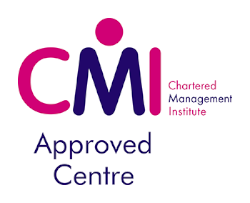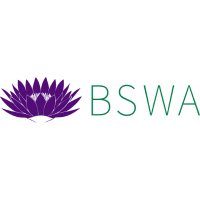Become a Values-Led Senior Leader
Join our fully-funded Level 7 Programme starting 27th November 2025
Why Choose Nishkam SLP?
The Nishkam Senior Leadership Programme (sLP) is an 18-month, Level 7 Senior Leadership Apprenticeship that takes a faith-inspired and inclusive approach to leadership development. Rooted in the universal values of service, compassion, integrity, and selfless action. The programme draws on these values to guide ethical leadership and empower participants to lead with purpose and integrity, benefitting both their business and local community.
Senior Leadership Programme
Duration: 12 months
Cost: £700 (95% Funding Available)
Level: 7
Awards: Chartered Manager Status
Who’s it for: Aspiring Senior Leaders & Executives
Delivery: Blended Learning Approach (Online with occasional in-person sessions)
Learners will dedicate 20% of their work hours towards off-the-job training.
Designed for SMEs
Nationally Accredited
Fully Funded by ESFA
Values-Based
Awarding Bodies & Recognition



Programme Modules
Discover The Programme Modules
Module 1: Developing Management Skills
The ability to optimise performance through the leadership and development of people is fundamental for leaders who wish to achieve and maximise organisational outcomes. Organisational success begins by placing the needs of people at the heart of the organisation, and through the creation of a culture which enables sustained organisational performance.
The aim of this module is for leaders to develop an in-depth understanding of how to effectively lead and develop people. They will explore the influence and impact of leadership theories, culture, wellbeing, development and design, policy and strategy that can be used creatively within the leadership role. ultimately, leaders will have the opportunity to propose a leadership and development strategy. The aim of which values people whilst optimsing an organisation's performance.
Module 2: Collaborate, Relationships and Organisational Behaviour
Collaboration and partnerships can have a huge impact on organisational success. These arrangements (formal or informal) can result in increased profitability and productivity as well as the development and delivery of new products and services. Collaboration and partnerships can turn ideas into reality, enhancing opportunities for innovation and creativity, research and development. Increasingly, collaboration and partnership working are required to be successful in gaining a bid or tender.
The aim of the module is for leaders to understand collaborative and partnership arrangements. Leaders will critically assess the scope and value of these, as well as evaluating the impact of organisational and legal frameworks on how these arrangements are delivered. The unit culminates int he requirement for the leader to present a rationale for collaboration or partnerships to further an organisation's success
Module 3: Leading and Developing People
Effective strategic leadership is a catalyst for organisational success. Leaders have to be knowledgeable, creative, agile and resilient to respond to organisational need in the contemporary workplace.
The aim of this module is to equip leaders with an in-depth understanding of strategic leadership within an organisational context. Leaders will explore the complexities of the role and the theoretical perspectives, approaches, behaviours and skills which can enhance their professional practice. The unit focuses on the leader's ability to respond creatively to complex organisational challenges and understand how to set and deliver sustainable goals.
Module 4: Finance
Practicing leaders must have an understanding of the Finance function to be an effective decision maker within their role. Finance impacts on all aspects of an organisation and has a profound influence on the development and achievement of strategic objectives.
The aim of this module is to provide leaders with an understanding of the scope, complexity and role of Finance within an organisational context. Leaders will know how to critically assess methods for analysing financial data and information required to make strategic decisions. Ultimately, the aim of this unit is to equip leaders to be more confident in their understanding of the Finance function.
Module 5: Strategy
Leaders must have an in-depth understanding of strategy and how it can be developed if they are to operate effectively in complex local, national and global markets.
The aim of this module is to enable leaders to know how to develop and influence an organisation's strategic direction through the development of a meaningful strategy. To support this outcome, leaders will critique the factors which drive the development of organisational strategy and appraise approaches to successfully develop strategy. The module culminates in leaders developing an organisational strategy to achieve a business goal. To complement this activity, leaders will propose an approach to implement and monitor the strategy developed to ensure its sustained success.
Module 6: Innovation and Change
Leaders must be able to navigate an organisation through strategic change. This will optimise an organisation's ability to remain competitive, react to the needs and expectations of stakeholders and respond to changing national and international markets.
The aim of this module is for leaders to understand the scope, context and complexity of leading strategic change. Leaders will understand how the application of analytical techniques, theories, and models of change, and creative problem-solving can be used to equip them to lead strategic change with confidence. The unit culminates in giving leaders the opportunity to develop a proposal to lead a strategic change.
Module 7: Strategic Management Proposal
A fundamental part of a leader's role is to develop and lead strategic management projects. Tailored to the long-term aims of the organisation, projects may focus on opportunities for organisational growth, development or the management of change. Projects may explore identified problems or weaknesses. They may be designed to create dynamic new opportunities in the competitive marketplace, explore new ways of working or build capabilities. Ultimately, a strategic management project should add value to the organisation.
The aim of this module is for leaders to undertake a strategic management project of their own choosing. To achieve this outcome, leaders will develop a business case, propose a research design to inform the project's direction and recommend project management methods and tools to structure the delivery of the project. Leaders will report on project outcomes and reflect on the skills and behaviours which ultimately influence the success of the strategic management project.
Module 8: Enterprise and Risk Management
The ability to effectively lead strategic risk management is essential to safeguard an organisation's prosperity and reputation. Ultimately, leaders must know how to develop and lead risk management in a manner that not only reacts to organisational needs but contributes to organisational success.
The aim of this module is for leaders to develop an in-depth understanding of strategic risk management. Leaders will critically appraise strategic risk with an organisational context. They will assess strategies for risk management and the leadership skills to lead risk initiatives successfully. Ultimately, leaders will be given the opportunity to develop a framework to deliver a risk strategy in an organisational context.
What Our Learners Say
Influencing Change
“Each session unlocks something new in how I think and act as a leader. I’m already seeing the difference in how I influence systems and people. Jyoti has been brilliant, her regular check-ins and support help me stay focused and feel valued.” – Simeon Bright, Rights in the Community Lead at Central England Law Centre
Empowered to Lead in a Complex Environment
“NCA’s values-led approach is exactly what our sector needs. I’ve felt stretched, uplifted, and equipped to lead change in a complex environment. Dr Chris Jones and Prof. Pardesi brought such clarity and insights, they have opened my eyes to what transformative leadership really looks like.” – Shazna Islam, Head of Service at Birmingham & Solihull Women’s Aid
Employer Benefits
Increased Staff Retention and Morale
Improved Leadership within the Organisation
Cost-effective Professional Development (Fully Funded)
Boosted Productivity and innovation
Alignment with ESG and values-based goals
Pipeline of Future Senior Leaders
Current Employers













Improved Workplace Culture
“The leadership growth Shaneel is showing is remarkable – he’s already bringing new ideas and energy to our firm. I recently met Prof Upkar Pardesi to thank him personally for creating such high-level learning opportunities within the local community. These skills and leadership capabilities are vital to the health of our regional economy.” – Mandeep Rajput, Managing Director at Ark Accountants and Tax Services
Eligibility & How to Apply
Entry Requirements
- A Bachelor’s degree (or equivalent) and 3+ years managerial experience, or
- If no degree or formal qualifications: 5+ years of managerial experience
- Full-time employment (minimum 30hours/week)
- Spend at least 50% of your working hours in England
- Must be a must be a UK citizen or have an indefinite leave to remain and work in the UK.
- Agreement/commitment from your employer
Course Fees
As the SLP is an apprenticeship, there is no cost associated with the learner. Funding is accessible for employers to help cover the costs. Below are two methods:
- Apprenticeship Levy: Employers with an annual payroll of over £3 million contribute annually to the Apprenticeship Levy. The contribution they make goes straight into their digital accounts and can only be used for training their staff.
- Co-Investment: Employers who do not pay the levy only contribute 5% toward the cost of apprenticeship training, with the UK Government contributing the remaining 95% (up to the funding band maximum).
COURSE FEE
£14,000
£700 (95% Government Funding Available)
Onboarding Process
Step 1
Make a formal enquiry.
Step 2
Complete an online eligibility check.
Step 3
If you are eligible, you will then be asked to complete an online application form.
Step 4
We will then schedule a meeting with the Programme Director and your Employer/Line Manager.
Step 5
Next, a Health & Safety Audit alongside an analysis of your Employer’s needs will be carried out.
Step 6
Your Individual Learn Plan will then be created to tailor the course to your needs.
Step 7
A formal contract outlining the terms of the Apprenticeship will then be signed.
Step 8
Prepare for the start date of your programme!
Step 9
Promote the programme to your network and become an ambassador
Upcoming Events and Webinars
21
August
Webinar: Leading Effectively with AI
11AM - 1PM
Join us for an engaging webinar on how AI can be used as a tool for developing leadership insights to boost productivity and growth within their business.

